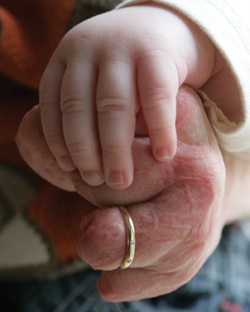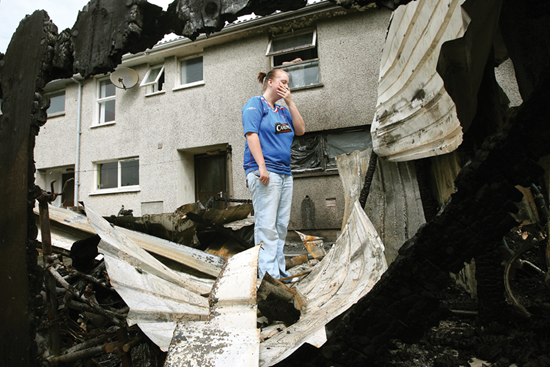Photographer John McVitty: variety is the spice of life
 Winner of last year’s BT Northern Ireland Regional Press Photographer of the Year award, John McVitty has been a lenseman for the Impartial Reporter for 28 years.
Winner of last year’s BT Northern Ireland Regional Press Photographer of the Year award, John McVitty has been a lenseman for the Impartial Reporter for 28 years.
Described by the judges of that competition as having “dedication, commitment and an intuitive eye for the perfect picture”, McVitty says the main challenge for a newspaper photographer is “creating different pictures for different stories.”
He enjoys having “plenty of variety” in his job and contends that “in the media world, every day is different.”
Since beginning his career 28 years ago as a darkroom technician, he was soon one of the resident photographers in the County Fermanagh paper. Now, he also takes wedding photos and PR shots for various companies.
“I don’t really have a favourite topic,” he explains. “Each assignment has its own challenges whether it be features, sport, news, weddings or PR. Nowadays a photographer needs to be able to shoot quality pictures, no matter what the topic is.”
In 2008, he came runner up in BT’s regional photographer category, also collecting two merit awards, but in 2009 he clinched the top prize saying: “It’s the daddy of them all.”
His portfolio of pictures, shown here, was described by the Sun’s royal photographer, Arthur Edwards, as "excellent." Edwards claimed that McVitty’s portfolio “shows sadness and joy and pictures that make you smile.”
On what makes a good photograph, McVitty believes it is. “A picture that tells its own story whether it be colourful, happy or sad.”
He adds: “It has a lot to do with ‘naturalness’ and the emotional aspects of a very simple image.
“After all, I could set up a shot, with models, lighting, correct camera settings and composition that anyone could come along and shoot with any camera and get a great image. Is that photography or have I just set up a nice scene which can be photographed?”
Getting down to the technicalities, he explains that he has used Canon cameras throughout his career.
“I built up my equipment over the years and never had any problems with them. They always seem to be ahead of the game no matter what situation you find yourself in, and with their fast lenses, I value their reliability.”
He concludes: “Beauty, or the appreciation of art in any form, is in the eye of the beholder and that is certainly the case with photography.”









